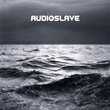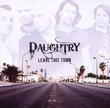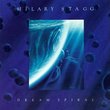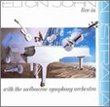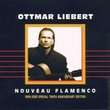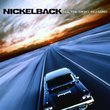| All Artists: Tangerine Dream Title: Zeit Members Wishing: 4 Total Copies: 0 Label: Sbme Castle Us Original Release Date: 1/1/1972 Re-Release Date: 1/21/2003 Album Type: Original recording remastered Genres: Dance & Electronic, New Age, Pop, Rock Styles: Electronica, Meditation, Progressive, Progressive Rock Number of Discs: 1 SwapaCD Credits: 1 UPCs: 021823615127, 060768124424 |
Search - Tangerine Dream :: Zeit
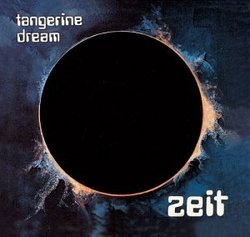 | Tangerine Dream Zeit Genres: Dance & Electronic, New Age, Pop, Rock
|
Larger Image |
CD DetailsSimilarly Requested CDs
|
CD ReviewsIn the interest of full disclosure 06/14/2004 (4 out of 5 stars) "The review credited to Kim Fletcher for this album was copied word for word from the liner notes for the Sanctuary reissue of "Zeit," written by Paul Russell. Otherwise known as plagarism. Good album, though." Zeit: A Masterwork of Experimental Music. Louie Bourland | Garden Grove CA | 04/05/2004 (5 out of 5 stars) "German synthesizer pioneers Tangerine Dream reached the height of their early experimentation with their third studio album, 1972's "Zeit" (the German word for "Time"). This album marked the debut of the band line-up consisting of TD-founder Edgar Froese, Christopher Franke and Peter Baumann - the line-up which would go on to make some of the most influential music under the TD-band name over the next several years. Unlike the psychedelic acid rock of their first two albums, "Zeit" takes on a different direction entirely. The album was conceived as a 'Largo in Four Movements' with each track taking up an entire side on the original double-LP. The music is completely void of rhythm and displays a dark layered textured sound. Synth pioneer Brian Eno would later coin this type of music as 'Ambient music'. In addition to the band line-up of Froese, Franke and Baumann, the band employs several guest musicians on "Zeit" including former TD-member Steve Schroyder on organ, the late Florian Fricke of the experimental band Popol Vuh on the Moog synthesizer and a cello quartet consisting of Hans-Joachim Brune, Johannes Lucke, Christian Vallbracht and Jochen Vom Grumbcow. The band itself begins to add more keyboard dominance to its sound as demonstrated by the use of primitive VCS3 synthesizers (used here with outstanding results by Franke and Baumann), audio generators (handled by Froese) as well as the usual electronic organ. The entire "Zeit" journey begins with the strangely-titled "Birth Of Liquid Plejades". This 20-minute piece is divided into three distinct sections. The opening section is domintated by the four cellists droning around a stationary A-minor chord. The eeriness of the cellos is further enchanced as the synthesizers begin to drift around the same chord. After the chilling cello section begins to fade out, a quiet organ passage peers in along with a Moog synth-lead from guest Florian Fricke. There is a certain calmness and peacefulness to this section which is a sharp contrast to the chaotic opening part. This is followed by a more dominant cathedral-sounding organ which takes the piece to its final fade-out. The second piece "Nebulous Dawn" is an 18-minute track which is highly experimental and atonal. It begins with a series of dark grunting notes and shimmering vibraphones. The piece then shifts to rumbling wall-shaking tones along with random glass-like notes. The final half of the piece is dominated by siren-like noises and wigged-out spacey electronics which carry the piece the rest of the way. An extremely weird track indeed. "Origin of Supernatural Probabilities" is another experimental piece that has slighter hint of melody to it as opposed to the previous track. Edgar Froese's guitar opens this piece with some quiet almost inaudible chords. This is followed by a choir of howling voices that sound like they were either created by synths or a slide guitar. This leads into a low-throbbing synth pulse accompanied by a droning cello and various outer-space noises and sounds. Several minutes later, the pulse synth exits the mix and the ghost-tones return along with whining shreiking background noises. Edgar's guitar intro returns briefly to bring this drone-fest full circle and to its logical conclusion. The album closes with the 17-minute title track which is probably the most etherial track on the entire album. The entire piece consists of haunting wailing notes with dark forboding synth sounds. There is a brief passage of vibraphones from "Nebulous Dawn" heard towards the end of the piece as well as what sounds like a mistake played from Edgar's guitar (heard clearly at around 14-minutes into the track). The piece ends with the same passage of ghostly choir sounds that dominated the previous track. This brings the entire album to a close. Since it's initial release in Germany in 1972, "Zeit" has gone onto become a classic of Tangerine Dream's early work. Although, it was not so well received when it was first released, it is now embraced with open arms by many musicians and critics alike. Many later electronic musicians such as Steve Roach, Robert Rich, the French band Lightwave as well as the aforementioned Brian Eno would go on to make music with the same asthetic as "Zeit". Edgar Froese and friends should be well applauded for their pioneering work on this album. What raised many eyebrows in 1972 is now well accepted over 30 years later. "Zeit" is a timeless piece of art that can be listened to and studied over and over again and still have undiscovered elements emerge from the speakers. A Highly Recommended Masterpiece." Totally spellbinding Steve Benner | Lancaster, UK | 01/27/2003 (5 out of 5 stars) ""Zeit" was only Tangerine Dream's third album release and a more courageous popular music release would be difficult to imagine. I mean, what group nowadays would be likely to use an instrumental line-up of four cellos, organ, vibraphone and gliss guitar for its opening number? Or dare attempt a work of almost 80 minutes duration with not a single drumbeat, tune or melody, or even variation in pace from the deathly slow? Yes, here you have it: the ultimate forerunner to Dark Ambient! "Zeit" dates from 1972, but for many, this music remains completely outside of time and stands forever timeless (German speakers will note the pun!) [Ohr's faith in Tangerine Dream must have been enormous, given that this was a double album when released on black vinyl! I remember my (imported) copy, bought in my student days, cost almost a whole term's rent!] Subtitled "largo in four movements", "Zeit" is, in fact, a single, large-scale work, intended to be experienced at one sitting and I would encourage you to play it this way. The pace is, as the title suggests, unremittingly slow. And the volume level is never high (indeed, there are times when it descends to levels barely audible). You can expect no excitement here. And yet, this music is never boring. From the moment the cellos begin their long drawn out groans, until the music's final dying gasp, the slow unfolding of magical musical ideas is always completely captivating and absolutely spell-binding with the power to hold one's attention throughout the whole 76 minutes of this double album. And although the disc's analogue origins are noticeable at times, they are never intrusive. As I have already suggested, the sound world of "Zeit" is completely unlike any popular music release either before or since (not strictly true: there were a couple of German groups attempted to emulate the style shortly afterwards, but not with any degree of success) and it remains hard to categorise even now, but then one thing that this music opens to the mind to just how pointless it is to try! The movements' titles (and the cover's paintings) indicate a spacey theme to the music, suggested, I suppose, by the tranquil and meditative nature of the playing and also by the futuristic glissando tones that feature throughout, and gurglings and bubblings of early synth oscillator circuits (beautifully used). Ironically, anyone looking for similar material would do well to try the visionary organ works of Olivier Messiaen, or the works of the Estonian composer Arvo Pärt, both of whom will be filed away under the Classical music heading here on Amazon.com.Whatever your normal musical tastes, I urge you to try this disc, as it is a thing of rare beauty. But beware: it may alter your whole life..."
|

 Track Listings (4) - Disc #1
Track Listings (4) - Disc #1